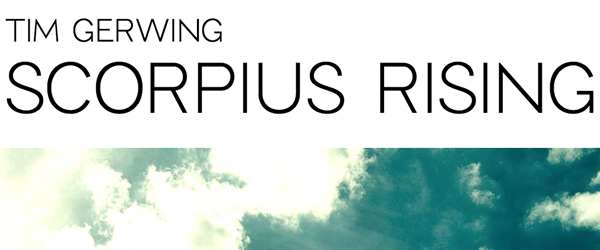
ZOUCH Close-up: Tim Gerwing – Music for the Inner Listener
Interviews, Musicians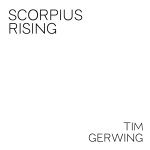
Scorpius Rising by Tim Gerwing
Canadian musician and multi-instrumentalist, Tim Gerwing, talks to Zouch Magazine about his 5th studio album, Scorpius Rising. Gerwing’s sound is hard to classify, as it borrows from many genres, but that is precisely what makes Scorpius Rising a real sonic treat. In this close-up, Gerwing talks to Zouch about the creative process, Potato Flowers, shamans, performing with Haram, and more.
ZOUCH: I felt the sense of momentum and movement very strongly on the title track “Scorpius Rising.” The electronic sounds set the foundation for a trance-like experience, while other sounds gradually build and evolve on top of that layer. How organic or deliberate was this process?
“Scorpius Rising”
TIM: My approach to composition is always very improvisational and experiential. I’m looking for a certain kind of feeling from the sounds I’m working with, and when I find the right feeling, I build on that. Music for me is a very sensual experience, and I’m always attracted to sounds that give me an almost altered state of consciousness – something that takes me out of the world of “words” and into the world of feelings, intuition, the senses; like knocking on the door of the unconscious and seeing it open just a bit.
I do have formal training in music, and I definitely bring that to bear during the creative process. So, the process is 50% deliberate, but I feel like it’s a collaboration with something other than just myself, and in that way I would have to say it’s much more organic and interactive than deliberate. That’s when the magic happens and I feel like I’m on to something and I just need to follow the instructions the music is giving me.
I don’t actually use the word “composer” when I describe myself because I never write anything down and what I do is usually more textural than melodic. What you are hearing on this album and my music in general is a huge amount of unrelated preparation coming together in the moment.
ZOUCH: Why “Scorpius Rising?”
TIM: I’ve had this title on my mind for quite a few years now. I myself am a Scorpio, and I feel like I’m becoming much more confident in my creative self and wanting to present this part of myself to the world, so I am certainly referencing that internal process in the title. I undertook a lot of personal work in 2013 and I wanted to have several lines of development come together in November 2013.
 I did use the word “Scorpius” rather than “Scorpio” in the title deliberately: I wanted to take this out of the world of everyday language and place it in a more special place. I’m not trying to place it above the ordinary in any way, but I feel that this music is inviting the listener to enter into what is perhaps a less frequently visited perspective of the everyday. My musical tagline is “Music for the Inner Listener”.
I did use the word “Scorpius” rather than “Scorpio” in the title deliberately: I wanted to take this out of the world of everyday language and place it in a more special place. I’m not trying to place it above the ordinary in any way, but I feel that this music is inviting the listener to enter into what is perhaps a less frequently visited perspective of the everyday. My musical tagline is “Music for the Inner Listener”.
Finally, I also used the word “Scorpius” as a reference to the constellation of that name. Musically and artistically, I’m working on building a creative bridge between the listener and the material world surrounding her. There is an inner universe and a material universe. As an artist, I’m interested in connecting those worlds and creating a sense of context in which to do it.
ZOUCH: What made you want to incorporate many styles of music? I hear some proggy elements on “Potato Flower” and “Blossom.”
“Potato Flower”
This is an important question. My simple answer is that deep inside I hear music, and I do my best to just follow the instructions of the music to bring it out into the world. I don’t hear genres or styles, I only hear feelings and environments. I like to have a broad range of colours, feelings, references, and stimuli, and as a result I find I experiment with a lot of different styles to create a kind of auditory ecology. But under the surface I feel it’s all referencing the same pool, the same creative soil.
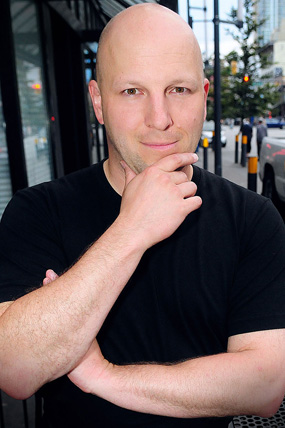
Tim Gerwing
I sometimes think of it like looking at an object through a multifaceted lens. You are always seeing the same thing, but you are seeing it in different ways. And, hopefully, after all this observation, you have a more complete idea of the wholeness of a thing, an observation that has the potential to change both you and the object.
ZOUCH: What is a Potato Flower?
TIM: It’s very rare that I title a piece before it’s done. I’m usually so focused on the musical aspect of the creative act that I am not thinking verbally – this probably is why most of the music I do is instrumental. However, once the piece has become material enough that I can “grasp” it, and is committed to a recording, the title often just pops into my head by itself, and that’s exactly what happened with this piece.
During my time living in Asia I became very attracted to the idea of finding the very profound and beautiful in the very ordinary. Somehow, this piece carried that idea and feeling well, and the title just presented itself spontaneously a few moments after I put down the guitar.
As it turns out, and I didn’t know this before the title came out, potatoes do have flowers:

Potato Flower
ZOUCH: “Facing Scorpio” has the feeling of a ritual, or a prayer, or even something hypnagogic and primal. What kind of state were you in when you made this song? Tell me about the decision to include the latitude/longitude in the title? What’s the relationship between place and the constellation/stellar space?
TIM: At that time, I was listening to North African music and really enjoying the trance-like quality. Some of the pieces get very long. The rhythms have a special loose quality that acts almost like an anti-gravity field on which you can float, and if you allow it to happen you can really lose track of time.
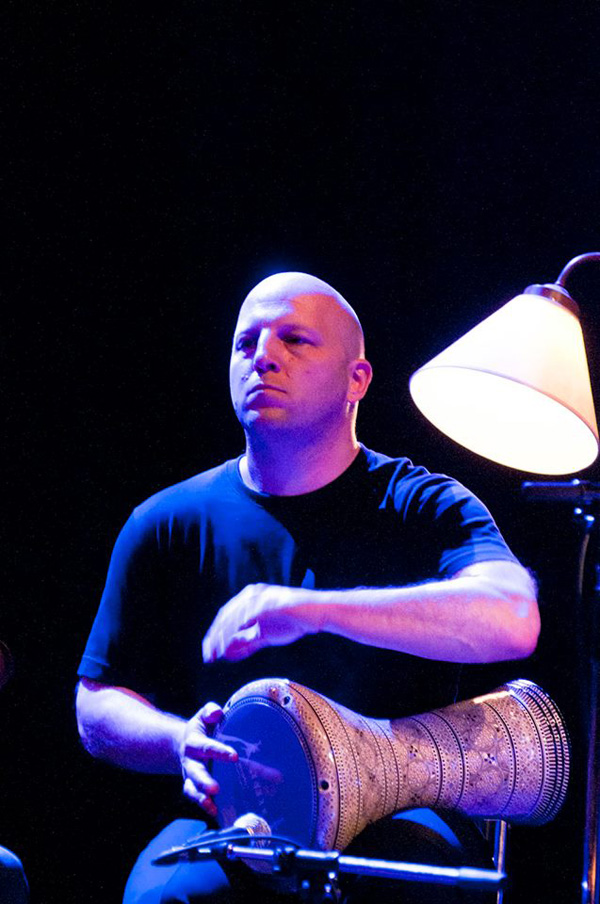
Tim Gerwing performing with Haram at the Vancouver International Jazz Festival
I also took a trip that included several days in the Sahara Desert, which was incredible. The quiet was unbelievable. The landscape forces you to change your relationship with time – things just take a lot longer and there’s more time, whether you need it or not, to just sit and experience the environment. The night sky was pretty extraordinary. I had a strong sense of connection between what I felt in this place and what I was reading about how in the middle ages the Muslim cultures were at the forefront of art, medicine, and science, especially astronomy.
In order to really plant myself in all these worlds and times I decided to include the LatLong in the title, while the music is a clear reference to those North African rhythms and the sense of enormity and quiet endlessness of the desert sky.
ZOUCH: Tell us about your experience performing with Haram.

Haram
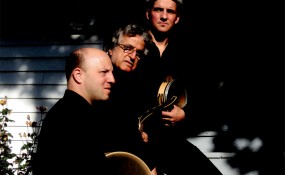
Serwan Yamolky Trio
TIM: I’ve been a member of Haram since its inception several years ago. Gord Grdina, the group’s founder, studied oud with Serwan Yamolky, the great Iraqi oud player and poet. I’ve worked with Serwan for several years as well, and that’s how Gord and I knew each other.
Working with Haram is one of my most enjoyable musical experiences. The guys in the band are top notch musicians, but what makes them great is their ability to listen – musical toes don’t get stepped on a lot in this group because people know when not to play as much as when to play.
The music is highly improvised, and we really don’t know what’s going to happen sometimes. So, we just have to go with it as it comes, and of course that’s an incredibly exciting feeling. There’s plenty of chaos, and out of that some extraordinary moments can come.
It’s a real tribute to the music, which consists of songs by Um Kulthum and Abdel Wahab among others, that it’s able to withstand this level of twisting and turning too. Arabic music is very different from traditional Western music; it’s rarely written down, and the melodies are more like suggestions, or branches on a tree on which the performer can make his own arrangement of leaves and flowers.
ZOUCH: “Marchons, les amis” was one of my favourite tracks on the album. Once again it has the same momentum and sense of movement, almost like a classical song. Do you think so?
“Marchons, les amis”
TIM: Thank you for enjoying this one. It’s one of my favourites too. I grew up in a Classical tradition, taking piano lessons for many years both in Germany and in Canada. I’ve spent a lot of time trying to undo some of the limitations I feel classical training imposes, but some influences are still there, obviously. I love this sort of harmonic movement – slow, thick, Baroque, but always moving and constantly shifting emotional context.
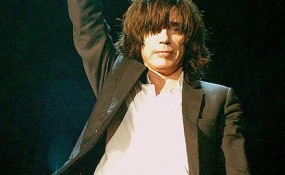
Jean Michel Jarre
In my teenage years I was introduced to Jean-Michel Jarre and I always enjoyed how effectively he fused a classical harmonic sensibility with a powerful pop sensibility, all filtered through the analog technology of his time. It’s great stuff. I also loved the way he was able to create these incredibly dense fields of introspection in the slower movements of “Oxygene”, “Equinoxe”, and “Les Concerts en Chine”.
Vangelis was another strong influence on me in my later teens and early 20s, and I think that comes through very strongly on this piece too.
ZOUCH: “Brief Eye Contact with the Shaman” is a song that incorporates so many styles. Can you speak about the various styles in this song?
TIM: I listen to a lot of different styles of music – my iPod is a pretty crazy collection of different sorts of things and I always keep it on shuffle, so I don’t know what’s coming up next either. One of the things I remember listening to at the time was a Smithsonian collection of Mongolian and Tuvan throat singing. This is incredible stuff – there’s one recording I remember of a man imitating the sound of a river with his voice. He listens for a few moments, then sings, listens, then sings. The impression is mind-boggingly accurate, wonderful, and magical.
Of course, shamanism is an important social force in these cultures.
I find that rock music has a very similar energy in terms of its ability to create a very “magic-ready” atmosphere – slightly wild and unpredictable, open to possibilities, intensely creative, and powerfully charged.
Electronic music is an area I have a bit of a love hate relationship with. I think electronic instruments and processes allow for a certain amount of externalization of the self. The hard part about real instruments is that you always have to expend effort to make them work! And, it’s easy to get bored with the limitations of your own playing. With electronic instruments, it’s possible to create a sort of semi-autonomous inspiration partner that the human musician and react to and play off of.

Tim Gerwing with Haram
I still believe in actually playing instruments, and most of what you hear on “Scorpius Rising” is actually physically played by me or another human musician. But some of it is from my robotic musical partners.
I have always admired the way Vangelis has been able to weave a coherent tapestry out of rock, classical, jazz, and something almost shamanic, and have it come out in such a powerful and intensely emotional musical form. I was definitely referencing that aesthetic when this piece came out, and I was quite happy with the psychedelic atmosphere that emerged at the end. The picture I had in mind was of a “normal” person having a very brief moment of eye contact with a shaman, and in that moment the person’s experience of time shifts radically, cultural boundaries are blown away, and she sees through time and space for a few seconds, even though it feels like hours.
I’m certainly not making any big statements about altered states here, but for me one of the most attractive things about music of any style is that, done well, it has the power to change and expand how we experience reality, and that’s exciting. That’s what I’m looking to tap into as an artist.
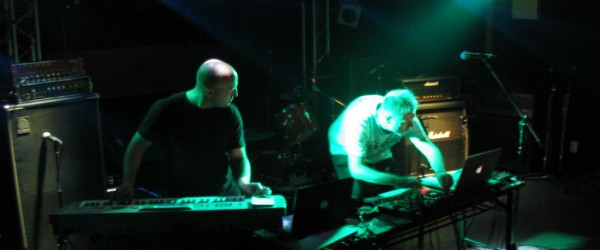
Tim Gerwing on tour in Japan with Infants in Eindhoven
ZOUCH: You are the founder of the 30 Days project. Please share the experiences that led you to start this project.
TIM: Like many people, I grew up with a misconception about creativity and its strongly associated and misunderstood word, “inspiration”. The idea I had was that the great artists were inspired first and simply excreted their work in near perfect form. Their frequent craziness (insanity) allowed them to “get out of the way” and their art took over, such that it seemed they almost unconsciously or despite themselves made their great work.
Over time, this idea lost its romanticism, but there was an aspect which I did not let go of easily: that inspiration came before work. I spent a lot of time bemoaning the fact that I did not just walk down the street and find myself struck by lightning that impelled me to race home and spend 24 hours straight “downloading the muse”.
Then came the great lesson of 30 Days: that in fact this inspiration/work relationship is entirely backwards. At least for me, the work has to be started first, the inspiration comes after that. For me, the hardest part has always been just turning on the equipment. In further research into the lives of artists and great thinkers, this theme has been a recurring one without fail. Inspiration is a result of work, and we are able to approach inspiration when we give first to the process. My personal revelation here was that inspiration is really always there, the mistake is to expect it to descend towards us when the opportunity is always there to pull ourselves up towards it.
It may not work for everyone, but it’s a personal mythology I’ve come to be comfortable with and value tremendously in my creative endeavours.
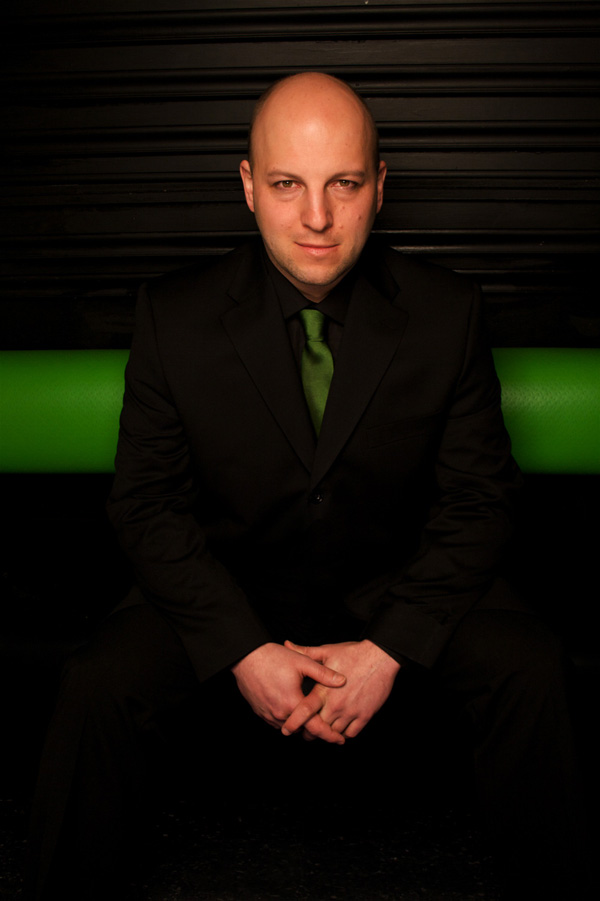 Tim Gerwing performs on keyboards, guitars, electronics, and Middle Eastern percussion both solo and with world musicians including Boris Sichon, Tarun (Beats Without Borders), and Serwan Yamolky in Vancouver, Canada. He has been a guest musician with Gord Grdina’s Haram, with artists on the Canadian Copperspine Records label, and is co-founder of the 30 Days Project.
Tim Gerwing performs on keyboards, guitars, electronics, and Middle Eastern percussion both solo and with world musicians including Boris Sichon, Tarun (Beats Without Borders), and Serwan Yamolky in Vancouver, Canada. He has been a guest musician with Gord Grdina’s Haram, with artists on the Canadian Copperspine Records label, and is co-founder of the 30 Days Project.






















